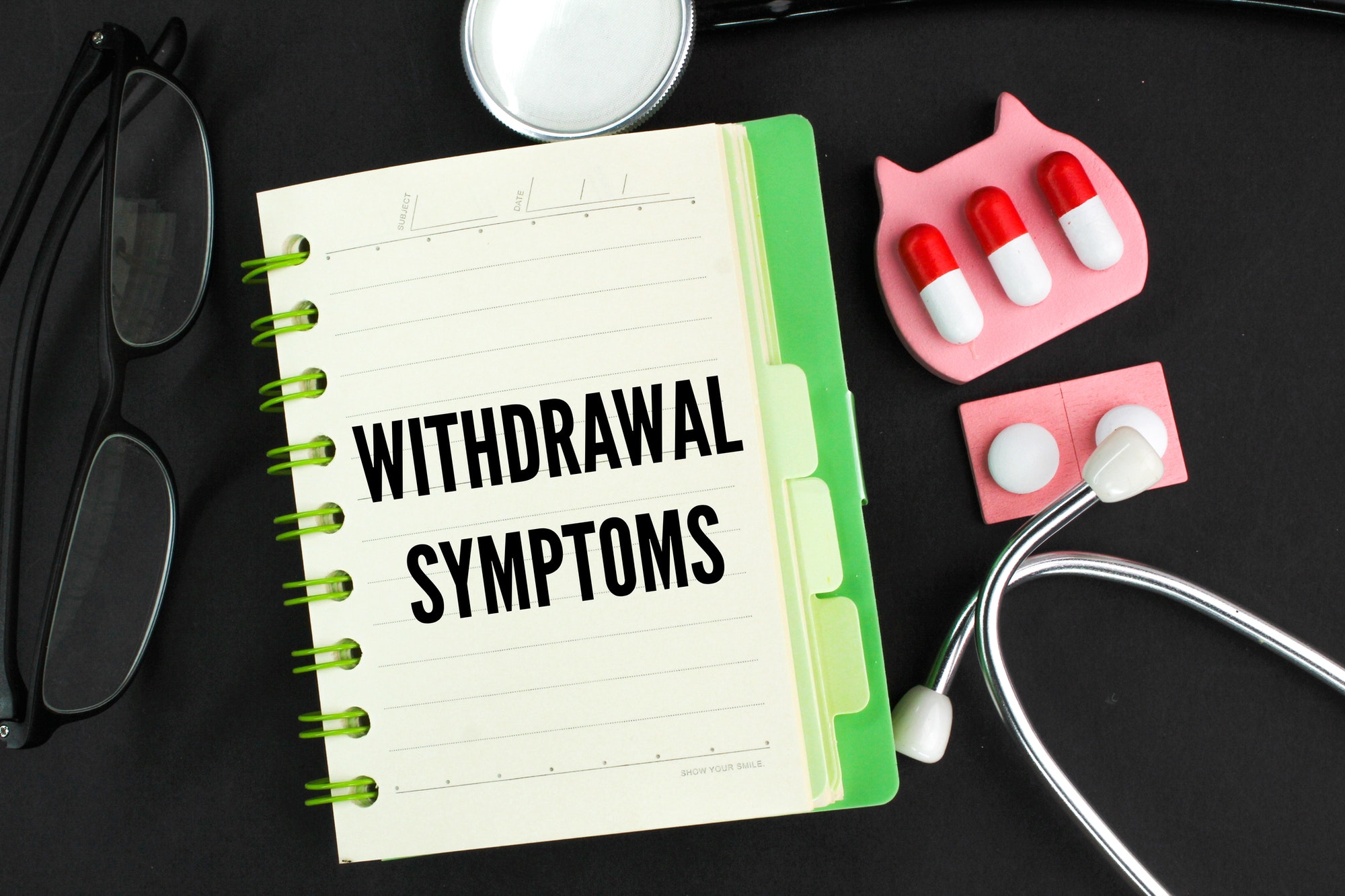Understanding Alcohol Withdrawal
Alcohol withdrawal is a physiological and psychological process that occurs when an individual abruptly reduces or stops their alcohol intake after a period of heavy and prolonged drinking. This process can produce a range of uncomfortable and potentially dangerous symptoms.
What is Alcohol Withdrawal?
Alcohol withdrawal refers to the group of symptoms that manifest when a person with alcohol use disorder discontinues or significantly reduces their alcohol consumption. It typically occurs within hours to a few days after the last drink. The severity of alcohol withdrawal symptoms can vary depending on factors such as the duration and extent of alcohol use, individual physiology, and any pre-existing medical or mental health conditions.
During heavy and prolonged alcohol use, the body becomes accustomed to the presence of alcohol and adapts its functioning accordingly. When alcohol is suddenly removed, the body undergoes a period of adjustment, leading to the manifestation of withdrawal symptoms. Alcohol withdrawal is a clear indication that the body has become dependent on alcohol and needs it to function normally.
Common Symptoms of Alcohol Withdrawal
Alcohol withdrawal symptoms can range from mild to severe and may include both physical and psychological manifestations. The specific symptoms experienced can vary from person to person. Some common symptoms of alcohol withdrawal include:
| Symptom | Description |
|---|---|
| Tremors | Involuntary shaking, typically affecting the hands |
| Anxiety | Feelings of unease, restlessness, and nervousness |
| Sweating | Excessive sweating, particularly during sleep |
| Nausea and Vomiting | Upset stomach, queasiness, and vomiting |
| Headache | Persistent or throbbing headaches |
| Insomnia | Difficulty falling asleep or staying asleep |
| Irritability | Increased irritability, agitation, and mood swings |
| Increased Heart Rate | Rapid heart rate or palpitations |
| High Blood Pressure | Elevated blood pressure levels |
| Confusion | Disorientation, difficulty concentrating, and memory problems |
| Hallucinations | Sensing things that are not actually present |
It’s important to note that severe alcohol withdrawal can lead to a potentially life-threatening condition known as delirium tremens (DTs). DTs typically occur within 48 to 72 hours after the last drink and may involve severe confusion, hallucinations, fever, seizures, and cardiovascular instability. If you or someone you know experiences these symptoms, immediate medical attention is necessary.
Understanding the symptoms of alcohol withdrawal is crucial for identifying the need for treatment and appropriate medical intervention. Seeking professional help, such as a medically supervised detoxification program, can significantly reduce the risks associated with alcohol withdrawal. To learn more about the alcohol detoxification process, visit our article on alcohol detoxification process.
In the following sections, we will delve into the importance of seeking professional help, the management of alcohol withdrawal symptoms, coping strategies, and long-term treatment options for alcohol use disorder.
The Importance of Seeking Professional Help
When dealing with alcohol withdrawal, seeking professional help is crucial for a safe and successful recovery. The risks and dangers associated with alcohol withdrawal make it essential to have medical supervision during this process. Let’s explore the risks and benefits of seeking professional help for alcohol withdrawal.
Risks and Dangers of Alcohol Withdrawal
Alcohol withdrawal can be a challenging and potentially dangerous process. Abruptly stopping or reducing alcohol consumption after prolonged heavy use can lead to a range of withdrawal symptoms. These symptoms can vary in severity and may include:
| Common Alcohol Withdrawal Symptoms |
|---|
| Insomnia |
| Anxiety |
| Nausea and vomiting |
| Tremors or shaking |
| Increased heart rate |
| Sweating |
| Hallucinations |
| Seizures |
In severe cases, a condition called delirium tremens (DT) can occur. DT is characterized by confusion, disorientation, hallucinations, and seizures. It is considered a medical emergency and requires immediate attention.
By seeking professional help, individuals experiencing alcohol withdrawal can receive the necessary medical care and monitoring to ensure their safety. Medical professionals are equipped to manage the risks associated with withdrawal and can provide appropriate interventions to alleviate symptoms and prevent complications.
Benefits of Medical Supervision
Undergoing alcohol withdrawal with medical supervision offers several benefits. Firstly, medical professionals can assess the severity of an individual’s withdrawal symptoms and determine the appropriate course of treatment. They may recommend medications to alleviate symptoms and help manage cravings. For more information on medications used in alcohol withdrawal, refer to our article on alcohol detoxification process.
In addition to medication, medical supervision provides a supportive and controlled environment. This environment allows individuals to receive emotional support, counseling, and therapies to address the underlying causes of alcohol use disorder. Seeking professional help also offers access to specialized treatment programs, such as outpatient alcohol treatment programs. These programs provide ongoing support and guidance throughout the recovery journey. To learn more about outpatient programs, visit our article on outpatient alcohol treatment programs.
Professional help ensures a comprehensive approach to treatment, considering not only the immediate withdrawal symptoms but also the long-term effects of alcohol abuse on physical and mental health. By addressing these factors, individuals can work towards long-lasting recovery and prevent relapse. For more information on long-term treatment for alcohol use disorder, refer to our article on long-term effects of alcohol abuse.
In conclusion, seeking professional help during alcohol withdrawal is of utmost importance due to the risks and dangers associated with the process. Medical supervision offers the necessary expertise, support, and resources to ensure a safe and successful recovery. If you or someone you know is struggling with alcohol use disorder, seeking professional help is a crucial step towards empowerment and positive change.
Managing Alcohol Withdrawal Symptoms
When dealing with alcohol withdrawal, it is crucial to manage the symptoms effectively to ensure a safe and comfortable recovery process. This section will explore two main approaches to managing alcohol withdrawal symptoms: medications and therapies/supportive care.
Medications Used in Alcohol Withdrawal
Medications play a vital role in managing the symptoms of alcohol withdrawal. They are often prescribed by healthcare professionals to alleviate discomfort and reduce the risk of severe complications. Here are some commonly used medications:
| Medication | Purpose |
|---|---|
| Benzodiazepines | These medications help relieve anxiety, reduce the risk of seizures, and promote sleep during alcohol withdrawal. Examples include diazepam (Valium), lorazepam (Ativan), and chlordiazepoxide (Librium). |
| Anticonvulsants | Anticonvulsant medications, such as carbamazepine (Tegretol) or valproate (Depakote), may be used in place of or in combination with benzodiazepines to prevent seizures. |
| Beta Blockers | Beta blockers like propranolol (Inderal) are sometimes prescribed to manage symptoms such as high blood pressure, rapid heart rate, and tremors associated with alcohol withdrawal. |
It’s important to note that medication should be prescribed and monitored by a healthcare professional experienced in alcohol withdrawal treatment. The specific medications and dosage will depend on individual needs and the severity of the withdrawal symptoms. Seeking professional guidance is crucial to ensure safe and effective treatment. For more information on the alcohol detoxification process, visit our article on alcohol detoxification process.
Therapies and Supportive Care
In addition to medications, therapies and supportive care are essential components of managing alcohol withdrawal symptoms. These approaches provide emotional support, coping strategies, and tools for long-term recovery. Some commonly used therapies include:
- Cognitive-Behavioral Therapy (CBT): This therapy helps individuals identify and change negative thought patterns and behaviors associated with alcohol use. CBT can assist in developing healthier coping mechanisms and preventing relapse.
- Group Therapy: Group therapy sessions provide a supportive environment where individuals can share their experiences, gain insights from others, and receive encouragement from peers who are facing similar challenges.
- Family Therapy: Family therapy involves the participation of family members to address underlying family dynamics, improve communication, and provide support for the individual in recovery.
- Individual Counseling: Individual counseling sessions allow for personalized attention and guidance. A therapist can help individuals explore their motivations, set goals, and develop effective strategies to overcome alcohol use disorder.
Supportive care during alcohol withdrawal may also include nutritional support, ensuring proper hydration, and promoting restful sleep. These measures contribute to the overall well-being of the individual and aid in the recovery process.
It is important to remember that managing alcohol withdrawal symptoms is just one step in the journey to recovery. Long-term treatment, such as participation in rehabilitation programs and outpatient alcohol treatment programs, along with aftercare and relapse prevention strategies, are crucial for sustained recovery. Understanding the long-term effects of alcohol abuse is also essential in making informed decisions about treatment options. For more information on the topic, refer to our article on long-term effects of alcohol abuse. By addressing both the immediate symptoms and underlying causes of alcohol use disorder, individuals can empower themselves to lead healthier, fulfilling lives.
Coping Strategies for Alcohol Withdrawal
During the process of alcohol withdrawal, it’s important to implement coping strategies that can help manage the discomfort and challenges that may arise. By creating a supportive environment and practicing self-care, individuals can navigate through this phase with greater ease.
Creating a Supportive Environment
Having a supportive environment is crucial for individuals going through alcohol withdrawal. Here are some strategies to create a supportive atmosphere:
- Seeking support from loved ones: Reach out to trusted family members and friends who can provide emotional support and understanding during this challenging time.
- Avoiding triggers: Identify and remove any triggers that may tempt you to drink. This could involve avoiding certain social situations or environments where alcohol is present.
- Joining support groups: Consider joining support groups or attending Alcoholics Anonymous (AA) meetings where you can connect with others who have similar experiences. These groups provide a safe space to share and learn from one another.
- Educating family members: Educate your family members and close friends about alcohol withdrawal symptoms, so they can better understand what you’re going through and offer appropriate support.
Self-Care Practices
Prioritizing self-care is essential during the alcohol withdrawal process. Here are some self-care practices that can help you cope:
- Maintaining a healthy routine: Establishing a structured daily routine can provide stability and a sense of control. This includes maintaining regular sleep patterns, eating nutritious meals, and engaging in regular physical activity.
- Practicing relaxation techniques: Incorporate relaxation techniques such as deep breathing exercises, meditation, or yoga into your daily routine. These practices can help reduce stress and promote a sense of calm.
- Engaging in hobbies and interests: Find activities that bring you joy and help distract from withdrawal symptoms. This could include reading, painting, listening to music, or pursuing other hobbies that you enjoy.
- Getting professional help: Consider seeking professional help from healthcare providers or addiction specialists who can guide you through the withdrawal process. They may recommend medications or therapies to alleviate symptoms and support your recovery journey.
Remember, coping strategies for alcohol withdrawal may vary from person to person. It’s important to find what works best for you and adapt these strategies to your individual needs. By creating a supportive environment and practicing self-care, you can navigate through alcohol withdrawal with resilience and set a strong foundation for your long-term recovery.
If you’re interested in learning more about the alcohol detoxification process or outpatient alcohol treatment programs, be sure to check out our related articles on alcohol detoxification process and outpatient alcohol treatment programs. Additionally, understanding the long-term effects of alcohol abuse can provide insight into the importance of seeking treatment. Read more about it in our article on long-term effects of alcohol abuse.
Long-Term Treatment for Alcohol Use Disorder
For individuals struggling with alcohol use disorder, long-term treatment is essential to address the underlying issues and support lasting recovery. Two key components of long-term treatment for alcohol use disorder are rehabilitation programs and aftercare with a focus on relapse prevention.
Rehabilitation Programs
Rehabilitation programs play a crucial role in helping individuals overcome alcohol use disorder and regain control of their lives. These programs offer a structured and supportive environment where individuals can work on their recovery with the help of trained professionals.
Rehabilitation programs typically provide a combination of medical, psychological, and social interventions tailored to meet the unique needs of each individual. They may include:
- Detoxification: Before starting a rehabilitation program, individuals may need to undergo a medically supervised detoxification process to safely manage withdrawal symptoms. For more information on this process, refer to our article on alcohol detoxification process.
- Counseling and Therapy: Individual and group counseling sessions are essential components of rehabilitation programs. These sessions help individuals explore the root causes of their alcohol use disorder, develop coping strategies, and learn healthier ways to manage stress and emotions.
- Behavioral Therapies: Behavioral therapies, such as cognitive-behavioral therapy (CBT) and motivational interviewing, are commonly used in rehabilitation programs. These therapies focus on changing negative thought patterns, building motivation for change, and developing skills to resist alcohol cravings.
- Education and Skill-Building: Rehabilitation programs often provide education on the long-term effects of alcohol abuse, as well as skills training to help individuals navigate their recovery journey effectively. This may include relapse prevention strategies, communication skills, and stress management techniques.
- Peer Support: Many rehabilitation programs incorporate peer support groups, such as Alcoholics Anonymous (AA) or SMART Recovery, to provide individuals with a supportive community of peers who understand their struggles and offer encouragement.
It’s important to note that rehabilitation programs can be offered in different settings, including inpatient/residential programs and outpatient programs. Inpatient programs provide a highly structured and intensive environment, while outpatient programs offer more flexibility, allowing individuals to continue with their daily responsibilities. To learn more about outpatient programs, refer to our article on outpatient alcohol treatment programs.
Aftercare and Relapse Prevention
After completing a rehabilitation program, ongoing support is crucial to maintain sobriety and prevent relapse. Aftercare programs and relapse prevention strategies are designed to provide continued support and help individuals navigate the challenges they may face during their recovery journey.
Aftercare programs may include:
- Continued Counseling: Regular counseling sessions can help individuals address any ongoing emotional or psychological issues related to their alcohol use disorder. These sessions provide a safe space to discuss challenges, receive guidance, and reinforce healthy coping strategies.
- Support Groups: Participating in support groups, such as AA or other recovery-oriented groups, can provide individuals with ongoing peer support and a sense of community. These groups offer a platform to share experiences, celebrate milestones, and receive encouragement.
- Lifestyle Changes: Making positive lifestyle changes, such as adopting a healthy diet, engaging in regular exercise, and practicing stress-management techniques, can support long-term recovery and overall well-being.
- Relapse Prevention Techniques: Learning and implementing relapse prevention techniques is crucial for maintaining sobriety. These techniques may include identifying triggers, developing coping strategies, and creating a relapse prevention plan.
By combining the benefits of comprehensive rehabilitation programs with effective aftercare and relapse prevention strategies, individuals with alcohol use disorder can increase their chances of long-term recovery and lead healthier, fulfilling lives. It’s important to remember that recovery is a personal journey, and each individual may require a unique combination of treatment approaches. To understand the long-term effects of alcohol abuse, refer to our article on long-term effects of alcohol abuse.








